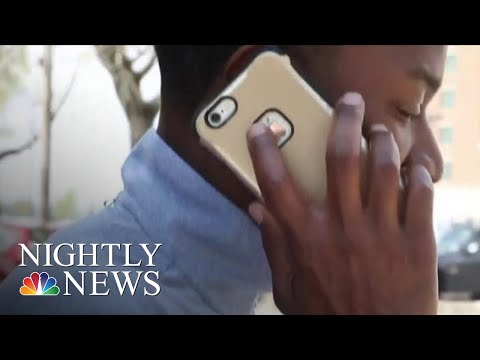FTC Announces Shutdown of Groups Responsible for “Billions” of Robocalls; AT&T and Comcast Announce New Caller ID Systems
NEW YORK – Some might say ‘thank goodness‘ as the Federal Trade Commission (FTC) announced this week that they have officially shut down four groups responsible for “billions” of illegal robocalls that have been plaguing U.S. residents, with an agreement put in place that will see the groups in question stopping their use of automatic dialers, in addition to paying millions of dollars in fines.
A robocall is a phone call that uses a computerized auto-dialer to deliver a pre-recorded message, as if from a robot. Robocalls are often associated with political and telemarketing phone campaigns, but can also be used for public-service or emergency announcements. Some robocalls use personalized audio messages to simulate an actual personal phone call, and range from legitimate business uses such as surveys and home improvement offers to scams such as fake charities and threatening messages from individuals falsely claiming to be the IRS.
Robocalls have become a major nuisance in recent years, with American consumers reporting in 2018 to have received over 26 billion of the annoying automated contacts; this represents a whopping increase of 46 percent from the amount of calls reported in 2017, reports say.
Higher Goals Marketing, Veterans of America, Pointbreak Media, and NetDotSolutions are the four groups that have reached settlement agreements with the FTC. NetDotSolutions was responsible for over a billion calls per year, FTC officials said, and Pointbreak Media had been previously accused of falsely claiming to represent Google, issuing threats via robocalls to remove business listings from the search engine’s results unless they were paid fees as high as $700. In addition, the FTC said that Higher Goals Marketing offered debt-relief services that failed to live up to the results that were promised, and that Veterans of America sold items such as cars and boats donated in good faith via a fraudulent charity, after which they pocketed the proceeds.
All four groups have also been collectively hit with fines totaling in the millions of dollars, although many of the fines have the potential to be reduced if the groups agree to submit partial payments – and, in the case of Veterans of America, forfeit its ill-gotten goods and property – within a set period of time.
Robocalls remain a major nuisance to many Americans, with legislation considered ‘behind the curve of technology’ and struggling to catch up; do not call lists have been available for many years, but the lists have proven to be largely ineffective and legally problematic in some cases.
Consequently, a market has developed for products that allow consumers to block robocalls, especially in the form of smartphone apps as well as products developed for use with landlines. In addition, many laws and regulations are currently in the works, both on local and federal levels, which will hopefully address this issue and greatly reduce its occurrence.
Robocalls, unfortunately, are even more effective recently by a process known as “spoofing,” a technology that allows robo-callers to forge Caller ID information and present false names and phone numbers. Since spoofed calls can originate from other countries, the laws in the receiver’s country may not apply to the caller. This limits the effectiveness of laws against the use of spoofed caller ID information, and is clearly yet another hurdle for the FTC and lawmakers to have to contend with. And even if a company identified as an illegal robocaller is shut down through legal means, experts say, several more are ready and waiting to pop up and take their place, leading to a never-ending loop with consumers coming out on the losing end.
However, there is good news- phone service providers AT&T and Comcast announced last week that both companies have completed successful tests of new Caller ID authentication systems that are, over the course of regular use, able to verify if the phone number of an incoming call is legitimate or spoofed by utilizing digital certificates.
But before this technology is officially rolled out, a good piece of advice is to ignore calls from unknown numbers, especially if that number features the same first three digits as your own; this is a common spoofing practice for robocalls, as a familiar number is one a person is more likely to answer. However, by ignoring these calls and not picking up, you may actually reduce the overall number of robocalls you receive in the future, as the tech behind auto dialers will tend to abandon a number that consistently fails to pick up. (utopiamanagement) Also, remember to be very picky about giving out your phone number at all times, especially when it comes to sharing it online.




Comments are closed.